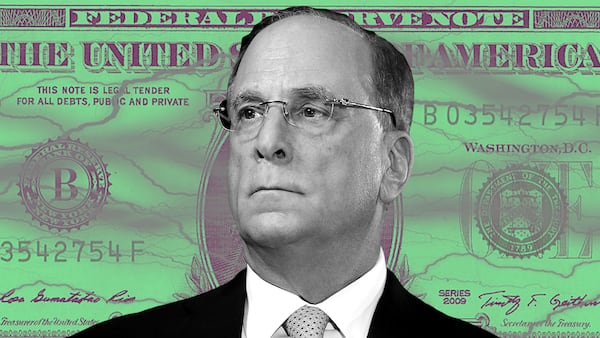- The Financial Stability Board is pushing countries to implement crypto regulations as part of its yearly work programme.
- Local regulators are progressing “surprisingly quickly,” FSB chief says.
- He added that changes in crypto markets, like new Bitcoin ETFs, call for monitoring.
The Financial Stability Board says the new US spot Bitcoin exchange-traded funds show the need to carefully monitor crypto markets as the international financial watchdog calls for countries to regulate crypto.
John Schindler, the general secretary of the FSB, which oversees the global financial system, made that clear this week when he outlined the FSB’s three goals for crypto markets in 2024.
They were a “set of minimum international standards, consistent global implementation of those and then ongoing monitoring,” he said in a Bank for International Settlements seminar this week.
“Because things are always changing in this space — and it’s not slow incremental changes, it’s rapid change,” he added. “Something like the Bitcoin ETFs are a good example of that.”
The recently approved spot Bitcoin ETFs in the US give institutional investors a new entry point into the crypto market.
“To the extent that you give people greater access, does that change the fundamental desire for these assets? We have to see,” Schindler said, adding that the ETFs’ lasting implications were hard to predict.
The comments came on the back of two weeks where billions have flowed through the freshly minted ETFs, kicking off a new era for digital assets, according to prominent market watchers.
FSB recommendations
FSB members include the world’s most powerful economies, global financial organisations like the International Monetary Fund, and standard-setting bodies like the International Organization of Securities Commissions.
Its job is to monitor and give guidance on the global financial system, and in 2024, implementing crypto regulations is part of the work programme published on Wednesday.
When it comes to crypto assets, the FSB gave its final word in July.
The FSB framework on how to regulate crypto assets globally follows a “same activity, same risk, same regulation” approach, which would level crypto activity with traditional finance, according to the FSB’s final recommendations.
Soon, the FSB will start monitoring the implementation of the recommendations across jurisdictions and deliver an update in October to the G20.
The reports came on the heels of major collapses of the FTX crypto exchange and Terraform Labs, which crumbled to the tune of $60 billion in 2022 and consequently filed for bankruptcy.
The recommendations were set to avoid similar events.
While many crypto advocates see benefits to harmonising policy internationally, many still push for a bespoke approach to regulate the nascent industry.
Surprisingly quick progress
Schindler said the FSB’s regional groups, governed by local senior central bankers, are “already reporting on the progress that they’ve made. It was very surprising how quickly they were taking action.”
Progress will be reviewed in 2025, according to its July report.
On its part, the FSB is helping to train international organisations on crypto regulations and is building models for technical implementation.
The FSB won’t apply any penalties on failures to comply, but Schindler is hoping peer pressure does the trick.
“If somebody doesn’t implement the recommendations, crypto asset providers flock there and something bad happens so nobody wants that outcome,” he said at the seminar.
Other international bodies also push for global crypto rules.
The Financial Action Task Force is driving the implementation of its anti-money laundering guidelines for crypto.
“This year we will see countries on the grey list work on virtual asset rules to get off the list,” Angela Ang, senior policy advisor at TRM Labs, previously told DL News.
Have a tip about crypto regulation? Contact the author at inbar@dlnews.com.









